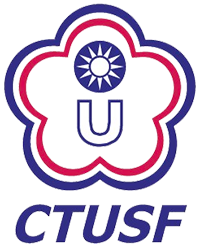Sports & Exercise Research Volume 10 Number 2
Author:Chih-Hsien Yang
Period/Date/Page:Vol. 10 No. 2 (2008 / 06 / 30) , P1 - 15
DOI:10.5297/ser.200806_10(2).0000
A Study of the Needs, Practices and Strategies of Resource Acquirement of National Sports Associations in Taiwan
Abstract:This study investigated the needs, practices and strategies of resources acquirement of Taiwan's national sports associations. A researcher-designed instrument, ”Practices, Needs and Strategies of Social Resource Development,” was used for data collection. A total of 55 secretary-generals of national sports associations participated in this study. The researcher conducted in-depth interviews and a questionnaire survey to collect data. This study found that first, over 90% of the associations reported a ”Normal” or higher degree of reliance on social resources, with the highest demand being ”financial support”; about 80% of them actively launched resource-raisers while the remainder replied ”unsuccessful acquiring experience” as the most common hindering factor. Second, ”Human Resource” was the most frequently reported in assisting the associations' current operations, with ”Sectary General” as most likely the person in charge of related tasks and ”Governmental Agencies” as the major providers; the overall acquiring effectiveness was rated ”Average” or below by about 70% of the respondents. Third, the influential factors of resource acquirement included ”Task Implementing Capability,” ”Strength/Advantages of the Organization” and ”Social and Environmental Constraints,” whereas ”Maintaining Public Relations,” ”Enhancing Organizational Effectiveness,” ”Integrating Outsiders' Influence,” and ”Careful Target Selection” were the identified resource acquiring strategies, both in a descending order of importance. All of the strategies were found to be significantly positively correlated with the overall acquiring effectiveness with ”Maintaining Public Relations” as the best predictor. (Full text)




